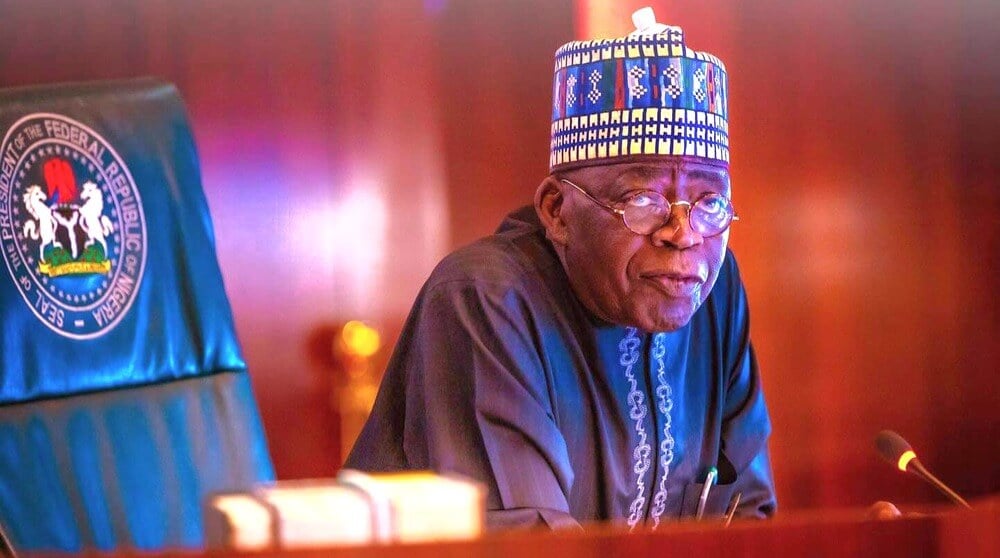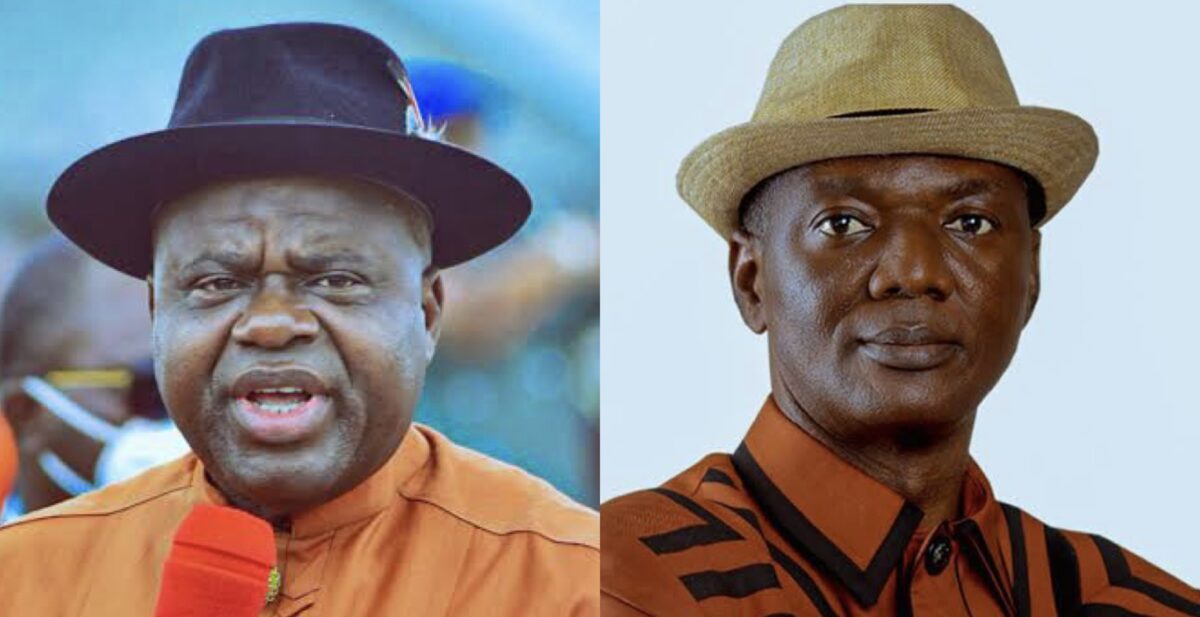Politics
EXPLAINER: PROPOSED TAX REFORM BILLS NOT AGAINST THE NORTH; THEY WILL BENEFIT ALL STATES
STATE HOUSE PRESS STATEMENT
EXPLAINER: PROPOSED TAX REFORM BILLS NOT AGAINST THE NORTH; THEY WILL BENEFIT ALL STATES
Governors of 19 Northern States of Nigeria, under the platform of the Northern Governors’ Forum, at their meeting on Monday, October 28, 2024, expressed their opposition to the new derivation-based model for Value-Added Tax (VAT) distribution in the new tax reform bills before the National Assembly.
Chairman of the forum, Governor Muhammed Inuwa Yahaya of Gombe State, read the communiqué.
The Northern Governors’ Forum meeting also had traditional rulers from the region, led by the Sultan of Sokoto, His Eminence Muhammadu Sa’ad Abubakar III, in attendance.
While we commend the Governors and traditional rulers for supporting President Bola Tinubu over the success recorded in addressing the country’s security challenges, we consider it necessary to address the misunderstandings and misgivings around the tax reform already embarked upon by the administration.
President Tinubu and the Federal Executive Council recently endorsed new policy initiatives aimed at streamlining Nigeria’s tax administration processes, enhancing efficiency and eliminating redundancies across the nation’s tax operations.
These reforms emerged after an extensive review of existing tax laws. The National Assembly is considering four executive bills designed to transform and modernise Nigeria’s tax landscape.
First is the Nigeria Tax Bill, which aims to eliminate unintended multiple taxation and make Nigeria’s economy more competitive by simplifying tax obligations for businesses and individuals nationwide.
Second, the Nigeria Tax Administration Bill (NTAB) proposes new rules governing the administration of all taxes in the country. Its objective is to harmonise tax administrative processes across federal, state and local jurisdictions for ease of compliance for taxpayers in all parts of the country.
Third, the Nigeria Revenue Service (Establishment) Bill seeks to rename the Federal Inland Revenue Service (FIRS) as the Nigeria Revenue Service (NRS) to better reflect the mandate of the Service as the revenue agency for the entire federation, not just the Federal Government.
Fourth, the Joint Revenue Board Establishment Bill proposes the creation of a Joint Revenue Board to replace the Joint Tax Board, covering federal and all states’ tax authorities.
The fourth bill also suggests establishing the Office of Tax Ombudsman under the Joint Revenue Board, which would serve as a complaint resolution body for taxpayers.
It is instructive to note that these proposed laws will not increase the number of taxes currently in operation. Instead, they are designed to optimise and simplify existing tax frameworks.
The tax rates or percentages will remain the same under these reforms, as they focus on ensuring a more equitable distribution of tax obligations without adding to the burden on Nigerians.
The reforms will not lead to job losses. On the contrary, they are structured to stimulate new avenues for job creation by supporting a dynamic, growth-oriented economy.
Importantly, these laws will not absorb or eliminate the duties of any existing department, agency, or ministry. Instead, they aim to harmonise revenue collection and administration across the federation to ensure efficiency and cooperation.
At the moment, tax administration lacks coordination among federal, state, and local tax authorities, often resulting in overlapping responsibilities, confusion, and inefficiency. Without reform, this inefficiency will persist.
The proposed laws aim to coordinate efforts between different tiers of government, resulting in better tax resource management and greater clarity for taxpayers.
Under existing laws, taxes like Company Income Tax (CIT), Personal Income Tax (PIT), Capital Gains Tax (CGT), Petroleum Profits Tax (PPT), Tertiary Education Tax (TET), Value-Added Tax (VAT), and other taxing provisions in numerous laws are administered separately, with individual legislative frameworks.
The proposed reforms seek to consolidate these multiple taxes, integrating CIT, PIT, CGT, VAT, PPT, and excise duties into a unified structure to reduce administrative fragmentation.
On the proposed derivation-based VAT distribution model, which the Northern Governors oppose, it must be stressed that the new proposal, as enunciated in the Bill, is designed to create a fairer system.
The current model for distributing VAT is based on where the tax is remitted rather than where goods and services are supplied or consumed. The ongoing tax reform seeks to correct the inherent inequity in the current derivation model as a basis for distributing VAT revenue.
The new proposal before the National Assembly outlines a different form of derivation which considers the place of supply or consumption for relevant goods and services. This means that states in the Northern region that produce the food we eat should not lose out just because their products are VAT-exempt or consumed in other states.
These reforms are critical to improving the lives of Nigerians and were not put forward by President Tinubu to undermine any part of the country. There is no better time than now for the National Assembly to give due consideration to these bills that will overhaul our tax systems and create the revenue all the tiers of government require to fund the development our country and people urgently need.
Bayo Onanuga
Special Adviser to the President
(Information & Strategy)
October 31, 2024
Politics
Accord Party Crisis Deepens As Another Governorship Candidate Emerges For Osun Polls

A faction of Accord Party has held its own governorship primary, where Mr. Clement Bamigbola emerged as the faction’s governorship candidate for the 2026 Osun State election.
This is coming just four days after the emergence of Governor Ademola Adeleke as the party’s flag-bearer.
Recall that the party under the leadership of Maxwell Mgbudem, on Wednesday, held a similar exercise which produced Governor Ademola Adeleke as the party’s candidate.
However, a faction of the party rejected his emergence, insisting that Barrister Maxwell Mgbudem is not the legally recognized national chairman of the Accord Party.
In a fresh development on Sunday, about 300 delegates of the Accord Party from across Osun State elected Bamigbola as the factional candidate during a primary held at Regina Suite, Osogbo.
Bamigbola emerged through a voice vote conducted by the delegates, after which the Chairman of the Primary Committee, Hon. Olufemi Ogundare, declared him the party’s candidate for the 2026 Osun State governorship election.
Politics
Tinubu, ECOWAS leaders meet in Abuja over Benin coup, regional stability

President Bola Tinubu and leaders of ECOWAS countries are currently meeting in Abuja.
The 68th Ordinary Session of the ECOWAS Authority of Heads of State and Government is taking place at the State House Conference Centre, in Abuja.
Leaders of West African countries at the meeting include President Julius Bio (Sierra Leone, ECOWAS Chair), President Patrice Talon (Benin), José Maria Neves (Cabo Verde) and Alassane Ouattara (Côte d’Ivoire).
Others are Adama Barrow (The Gambia), John Mahama (Ghana), Umaro Embaló (Guinea-Bissau), Joseph Boakai (Liberia), Bassirou Faye (Senegal) and Faure Gnassingbé (Togo).
The meeting is coming against the backdrop of five turbulent years for West Africa, which saw coups in Mali (2020, 2021), Burkina Faso (twice in 2022), and Niger (2023).
The latest incidents include an attempted coup in Benin on December 7, 2025, and renewed instability in Guinea-Bissau.
At the time of filing this report, details of the meeting are yet to be disclosed.
Politics
Breaking: Diri Orders Autopsy on Bayelsa Deputy Governor’s Death, Warns Against Politicisation

Bayelsa State Governor, Senator Douye Diri, has ordered an autopsy to determine the cause of death of the state’s Deputy Governor, Lawrence Ewhrudjakpo.
Governor Diri gave the directive on Saturday while receiving former President Goodluck Jonathan at the Government House in Yenagoa.
Reacting to the incident, the governor condemned what he described as widespread misinformation and speculation on social media, warning against any attempt to politicise the deputy governor’s death.
“I want to make an appeal. I have seen people politicise his death. In Ijaw land, there is no enmity in death. Let nobody politicise the passing of our dearly beloved deputy governor,” Diri said.
“If anyone truly loves him, this is the time to show it. I have directed that an autopsy be carried out to reveal the cause of his death. There is a lot of nonsense going on on social media.”
The governor further urged the public to focus on mourning and honouring the late deputy governor, noting that the state government had declared three working days of mourning in his honour.
“If anyone is issuing statements to eulogise him, let it end there. Let us mourn him because Bayelsa State is in a mourning mood,” he added.
Governor Diri also called for unity and love among the people, reminding them of the inevitability of death.
Speaking during the condolence visit, former President Goodluck Jonathan described the late Ewhrudjakpo as a committed and dedicated individual who played a key role in the activities of his foundation.
“For me, he was someone my foundation and I will never forget. He represented the governor in all our programs,” Jonathan said, adding that Ewhrudjakpo worked tirelessly in that role, even more than when he served as deputy governor.
-
Business1 year ago
US court acquits Air Peace boss, slams Mayfield $4000 fine
-

 Trending1 year ago
Trending1 year agoNYA demands release of ‘abducted’ Imo chairman, preaches good governance
-

 Politics1 year ago
Politics1 year agoMexico’s new president causes concern just weeks before the US elections
-

 Politics1 year ago
Politics1 year agoPutin invites 20 world leaders
-

 Politics1 year ago
Politics1 year agoRussia bans imports of agro-products from Kazakhstan after refusal to join BRICS
-
Entertainment1 year ago
Bobrisky falls ill in police custody, rushed to hospital
-
Entertainment1 year ago
Bobrisky transferred from Immigration to FCID, spends night behind bars
-
Education1 year ago
GOVERNOR FUBARA APPOINTS COUNCIL MEMBERS FOR KEN SARO-WIWA POLYTECHNIC BORI












